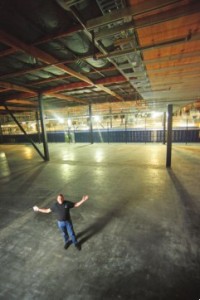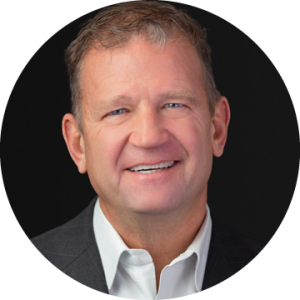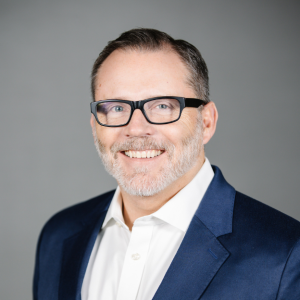 The internet backbone market has long been one of the toughest neighborhoods in telecom. One network that has withstood every storm that has come at the industry over the past 20 years is Hurricane Electric. Hurricane Electric operates a global IP backbone as well as two data centers in its home market of Fremont, California, and has been at the forefront of the rollout of IPv6. With us today to share his perspective is the company’s CEO and founder, Mike Leber.
The internet backbone market has long been one of the toughest neighborhoods in telecom. One network that has withstood every storm that has come at the industry over the past 20 years is Hurricane Electric. Hurricane Electric operates a global IP backbone as well as two data centers in its home market of Fremont, California, and has been at the forefront of the rollout of IPv6. With us today to share his perspective is the company’s CEO and founder, Mike Leber.
TR: Hurricane Electric has been in the IP networking business for 20 years now. How did you get started?
ML: I had been working in software engineering for about 15 years and worked at a number of high-tech companies setting up local area networks. I knew about the internet and ARPAnet, and in 1989 I tried to buy a connection. However, it wasn’t commercialized completely — it was academic and research-lab oriented, and they wouldn’t sell it to me. In 1993 I became familiar with HTTP and the Mosaic browser with images, and I knew that was going to be huge. In 1994, I was actually able to buy a connection at last and instead of consulting and helping people set up networks, I realized I could operate a network and servers as a business. And that was the genesis right there.
TR: How did that that idea evolve into the global backbone you run today?
ML: In 1995-1996 we started running BGP and connected to MAE-West and PAIX Palo Alto, and then we expanded to MAE-East in Virginia and to the AADS exchange in Chicago with Ameritech. Basically, we expanded the network organically, city by city, as each case could be made to get to a place with a large density of networks. We would look at places where there were a lot of metro fiber providers and regional carriers in a particular building and go there and make it so they can bring customers there to our core routers to get IP transit. And that’s the repeat story all around the world for our strategy; we end up facilitating a lot of local loop revenue and circuit revenue for carriers in the region, as they sell last mile or sometimes longer circuits to get to us.
TR: What parts of the world are you expanding into, and how do you make the business case to expand into a new market?
ML: We just brought up Rome recently, and also Osaka earlier in the year. We’re in the process of bringing up Seoul right now. It’s not just about cities, it’s about very carefully analyzing the market and noting there’s a lot of stranded fiber assets out there. It does nobody any good in the industry when you have different fiber providers whose nodes are in separate buildings in a city and there are no overlapping, common meet points. It’s much better when there are a couple carrier-neutral data centers where the people who spent the gigantic amount of capital it takes to put metro or longhaul fiber in the ground can overlap some. And that creates an opportunity for Hurricane Electric to sell IP transit and opportunity for those facilities based carriers to realize more of the potential of their cable plant.
TR: Despite all the consolidation of the last 15 years, Hurricane Electric has charted a path almost exclusively of organic growth. Why is that?
ML: There have been two problems for us with acquisitions. First, when we were organically growing the revenue didn’t support acquisitions and would have had to sell equity. And second, we’ve been through two big downturns in this industry with the dot-com bomb and the financial crisis of 2008-2009. We got through them fine, but afterwards a lot of people would look at network assets but would like the data center business much better. To raise money from them, we would have effectively had to give the business to them. Hurricane is closely held, and I’m not interested in taking equity money from somebody who expects an exit strategy or liquidity event. I don’t see that as a short term thing I can provide.
TR: Do you see more opportunities ahead for M&A than in the past?
ML: Yes, our run rate is now to the point where we can consider acquisitions on a case-by-case basis provided that they contribute revenue and more specifically margin so that it is sustainable. Now that we’re larger the conversations are going better. We have nice enough financials that the banks that are working with us are happy, so for acquisitions we’d probably use cash or some kind of debt.
TR: What type of assets would you be most interested in looking at, IP network assets or more data centers to complement the two you have in Fremont?
ML: IP networks probably. The issue for us is that on the data center side a lot of the people who have data centers primarily have equipment with a short term lease in someone else’s property. For Hurricane that’s not that strong because the strength of that business is determined by what rate they end up renegotiating in 5 or 10 years. On the data center side, we’d want to acquire the building. It doesn’t need to be wholly owned, but I need to have enough of an interest in the building such that I receive some of the benefit from making it a decent place to do business and build critical mass.
TR: Hurricane Electric has been at the forefront of the migration of IPv6. We hear less about that in the media than we did a couple years ago, why is that and how is IPv6 traffic growing?
ML: Talking about IPv6 growth is like talking about continental plates moving. It’s a long term trend. It’s going to go on for the whole time a person has a working career in telecom. But it’s growing fantastically. Take a look at Google’s IPv6 statistics graph; it the beginning of 2013, it was at about 1%. Now across its web properties Google’s traffic is speaking IPv6 at a rate of about 7%. From an industry point of view, this is fantastic.
TR: What factors made you decide to go all-in with IPv6 so early in the process?
ML: We deployed IPv6 early as a differentiating strategy because in telecom and especially IP, there aren’t too many differentiators. IPv6 is a new technology, the cost was relatively modest, and it actually serves an important technical purpose. IPv6 is just awesome for us. We had the advantage of already being an IPv4 network that was competing in interconnecting with other networks. We applied the same aggressive strategy for expansion, but almost nobody else showed up at the game with a major network and we ended up getting about 20 free laps around the track. For IPv6, Hurricane has 2601 adjacencies, far more than even the next couple of networks. And that’s just by us doing our normal business handling IPv6 just as we have IPv4.
TR: IP Transit is a very competitive market, have you ever considered expanding into other layers of the network with other products like CDN or hosting?
ML: There’s a combination of doing what you’re good at and a bit obsession. You could just as well ask the question “Why aren’t you IBM?” There are all kinds of businesses like hosting, CDN, and dedicated servers, that we could try, but it comes down to positioning and branding. Some businesses work well with your brand and some are a shift, and it’s a matter of what you’re effective at. There’s some mutual exclusion from both a branding and an expertise point of view. The advantage of being good at a particular thing is that you can get really good traction at it. But the curse is simply that you’re not doing other things.
The challenge for most businesses is selling, and the method by which you sell is key. For example, the CDN business has a different target customer profile and a different method by which you sell than IP transit or colocation. The top 20 customers of the CDN business are the ones that make you or break you. That’s very different than Hurricane’s business, which targets the 50,000 or so networks in the world and a couple hundred thousand internet companies. Hurricane is very much an engineering company. Are we good at bolting servers into racks? Yes, but the missing expertise for CDN is the sales side of it.
TR: What makes IP transit such a competitive business, and how do you manage organic growth doing it?
ML: One of the interesting things about IP transit is that it is one of the ultimate commodities. Normal commodities might matter where they are delivered, but some customers like hosting companies don’t even care about that. Another interesting thing about IP transit is that the price per unit declines constantly — when I started, the price for bandwidth was $2,000/Mbps. You can do a lot of analysis as to why, but it’s essentially related to Moore’s Law. The interface speeds available on routers and telecommunications equipment are related to the speed of computers at any particular time. Your unit price is going down, so you have to sell more and bigger ports to the same customers. To grow we have to both grow our relationships with existing customers perpetually and expand our network footprint to reach new pools of customers, and we’re making good progress on both. Hurricane currently has over 14,000 BGP sessions with over 3700 different networks across North America, Europe, and Asia. With the NAMEX exchange in Rome coming online soon, we’ll be the first internet backbone in the world to connect to over 100 internet exchanges.
TR: The FCC’s new network neutrality rules allow it to possibly intervene in peering and interconnection disputes. Do you see that affecting your business?
ML: For Hurricane, no, because we don’t get in fights with people. For net neutrality as a whole, it will probably good or neutral for us. We’re different than most networks in that we’ll publicly peer with most any network in a region. There are big fights of course, and when they happen the issue is strategically whether the damage that they do and the costs that they incur in reputation management is in excess of the amount of money actually at stake. If they just made the network work better and resolved their interconnection disputes in private instead, it probably would have made their customers happier.
TR: How do you think the world of interconnection and peering got to this point?
ML: There is a tug of war on the internet between content and eyeballs, and that’s always been the case. The problem is that there are tensions from a business plans perspective that are the normal thing that companies that have to work out, and a problematic public policy thing when people act to restrict access. These have gotten blended together in a way that, even if you’re in the industry, deciphering it is extremely complicated. But to some degree what you are seeing is also the manifestation of corporate personalities. Different companies have different personalities, and the vast majority work through their relationships fine in the interest of the public and the industry. But there are always a few companies that like to act out on the public stage to achieve their business objectives.
TR: Thank you for talking with Telecom Ramblings!
If you haven't already, please take our Reader Survey! Just 3 questions to help us better understand who is reading Telecom Ramblings so we can serve you better!
Categories: Industry Spotlight · Internet Backbones






Great interview, its nice to hear a CEO in this industry talk about the business in “real” non-corporate-buzzspeak terms.
Kudos to HE for staying true to their mission and being great at what they do.
It seems Mike started this company all by himself, very impressive. He said “I’m not interested in taking equity money from somebody who expects an exit strategy or liquidity event. I don’t see that as a short term thing I can provide.” I like the kind of long term passion and dedication.
this guy is rockstar! and he is a karate master. dont mess with the leber!